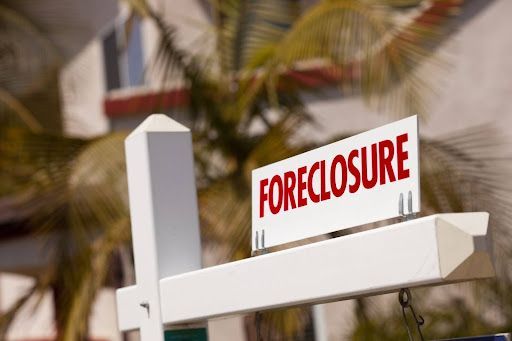Call or Text (786) 756-8805 to get a cash offer on your house!
Blog

March 31, 2025
Foreclosure is a daunting prospect for any homeowner. In Miami, the process can feel particularly overwhelming due to the area’s unique blend of state laws and local economic pressures. Many individuals facing financial hardship fear losing their homes or suffering long-term credit repercussions. However, understanding the foreclosure process and its implications can help you take proactive steps to protect your interests and, in some cases, avoid foreclosure altogether. In this guide, you will discover how foreclosure works in Miami, what its potential consequences are, how to minimize the damage to your finances, and why selling your home quickly could be a viable solution. Understanding the Foreclosure Process in Miami In Florida, foreclosure is a judicial process, meaning lenders must initiate a lawsuit to reclaim a property. A homeowner usually receives a notice of default if mortgage payments are missed for several months. At this stage, you have the right to respond to the lawsuit and potentially resolve outstanding debts. If no resolution is reached, a judge may grant the lender the ability to hold a foreclosure auction, ultimately leading to the sale of the home to pay the debt. Florida ranks among the states with some of the higher foreclosure rates in the country. Florida consistently shows elevated foreclosure activity compared to the national average. This statistic underscores the importance of prompt action if you’ve fallen behind on mortgage payments. Staying informed about Florida’s legal requirements can also help you navigate deadlines and documentation effectively. Potential Consequences of Foreclosure When a home is foreclosed, the immediate effect is that the owner loses rights to the property. However, the negative impact stretches far beyond losing a physical residence: A homeowner’s credit score can plummet, making it more difficult to secure loans in the future—sometimes for years after the foreclosure process completes. Foreclosure can lead to legal and financial ramifications, including the possibility of a deficiency judgment if the auction price doesn’t cover the mortgage balance. Deficiency judgments can further strain a homeowner’s finances by holding them responsible for the difference between the sale price and the total debt owed. Emotional stress, which often heightens the financial and personal challenges faced by the homeowner and their family. These consequences highlight why avoiding or mitigating foreclosure should be a top priority for those in financial difficulty. Each stage of the legal process has strict timelines, and missing any deadline can speed up the loss of your home. Preventative Measures A proactive approach can sometimes deter foreclosure even after you start missing payments. In some cases, you may be able to negotiate new terms with your lender. Options like loan modifications or special forbearance can provide temporary relief. However, not all homeowners qualify for these solutions. Why Selling Quickly Can Be a Lifeline When foreclosure seems imminent, selling your property before the process gains momentum may save you significant stress and additional costs. By selling quickly, you could: Stop the foreclosure from progressing, allowing you to safeguard your credit from severe damage. Potentially settle your mortgage debt in full, preventing further complications such as a deficiency judgment. Offer closure, enabling you to move forward without dragging out a difficult financial chapter. A fast sale might require flexibility in pricing, but it can be more beneficial than facing a foreclosure’s lingering financial burdens. For homeowners looking to sell their property swiftly, Trusted Capital Homes can provide guidance by offering a fair and efficient home-selling process tailored to your situation. Alternative Paths to Avoid Foreclosure Apart from selling your home, there are other routes to explore. One approach is a short sale—selling your property for less than the amount owed on your mortgage. Although this requires lender approval, it can offer a resolution that prevents foreclosure from staining your credit for as long or as severely. Deed-in-lieu of foreclosure, where you voluntarily transfer ownership of the home to the lender, is another possibility. While these options still impact your credit, they often prove less detrimental than an outright foreclosure. Foreclosure in Miami is never a simple topic, but it’s important to approach it with clarity and resolve. Even under financial constraints, homeowners have multiple options. Selling the property on a tight timeline, negotiating new terms, or pursuing programs that allow for partial debt forgiveness can each offer valuable reprieve. If the pressure to pay overdue mortgage amounts is mounting, exploring a faster home sale might offer the relief you need. By closing a sale before foreclosure proceedings progress, you significantly lessen the long-term damage to your credit and avoid the stressful limbo of ongoing legal action. For personalized guidance on completing a quick property sale, visit Trusted Capital Homes .

March 30, 2025
Selling a property can be challenging under the best of circumstances, but when divorce enters the picture, the process often becomes more urgent and emotionally charged. A swift, structured plan for selling quickly can help divorcing homeowners move forward while ensuring a fair resolution. This case study examines what to expect when prioritizing a fast sale, highlighting essential steps, emotional factors, and professional resources that can ease the transition. Managing Emotions While Selling a Shared Property One of the most significant hurdles involves the emotional strain often accompanying the end of a marriage. According to the American Psychological Association, divorce can increase stress, anxiety, and conflict —factors that can interfere with rational decision-making during a property transaction. Anger, sadness, or fear of an uncertain future may surface unexpectedly, making a calm, communicative atmosphere vital. Establishing expectations for respectful discussions about the home is especially important. When tensions run high, brief check-ins or scheduled times dedicated to property-related issues can help both individuals remain focused on practical matters rather than limiting communication to heated moments. By addressing emotional concerns early on, divorcing parties can better maintain clarity about financial goals, timelines, and outcomes. Prioritizing Timelines for a Quick Sale For many divorcing homeowners, speed becomes a top priority—minimizing mortgage payments, reducing stress, and finalizing financial arrangements. Delays in listing or negotiating can lead to lingering expenses that magnify existing tensions. To avoid these pitfalls, creating a detailed timeline is essential. Having all pertinent documentation (mortgage statements, tax records, and any existing liens) can help expedite any required legal and financial reviews. Divorcing individuals should also be prepared for unexpected hurdles, such as home inspection results that might trigger negotiations with prospective buyers. Even in a quick sale scenario, flexibility can prove beneficial. Should minor repairs be necessary to maintain buyer interest, deciding which individual covers those costs—or whether they are taken out of the sale proceeds—demands clear, upfront communication. A prompt yet thorough approach to these details goes a long way in preventing further disputes. Ensuring Fair Agreements Determining a fair listing price and dividing sale proceeds can be one of the most sensitive aspects of a quick property sale. Research published in the Journal of Divorce & Remarriage indicates that property negotiations are frequently a major source of complications during divorce settlements. Both owners may have different views on what constitutes “fair,” particularly if there is sentimental value tied to the home. It often helps to establish an impartial approach. A neutral third-party valuation, or reviewing comparable properties in the neighborhood, reduces the likelihood of disputes rooted in emotion rather than fact. If external guidance is required, financial mediators or real estate attorneys can provide clarity. Even in time-sensitive circumstances, data-driven decisions help ensure both parties feel they have been fairly represented, reducing the risk of ongoing legal entanglements. Stress Management and Professional Guidance Ongoing stress can derail a quick sale, especially if parties struggle to communicate or maintain focus. Studies from the National Library of Medicine show that chronic stress can impact cognitive functioning, making decision-making more difficult. When conflicts escalate or one party feels ignored, a once-efficient plan can slow to a crawl, increasing costs and prolonging emotional strain. Professional guidance often serves as a buffer against these pressures. Therapists, counselors, or divorce coaches can facilitate healthier communication patterns and offer coping mechanisms for the emotional upheaval divorce entails. By seeking this kind of support, both individuals protect their mental well-being and maintain the clarity needed to keep the sale on schedule. How Trusted Capital Homes Can Assist A quick property sale during divorce may involve bypassing some of the more traditional processes that typically accompany a home listing. At Trusted Capital Homes , for instance, the team focuses on helping clients find streamlined solutions, reducing the time and effort required to list, coordinate showings, or negotiate multiple offers. The convenience of a direct home-buying service can help divorcing homeowners sidestep lengthy negotiations altogether. By working with a specialized home-buying company, divorcing parties may gain a measure of stability in an otherwise unsettled period. Rather than juggling open houses or protracted buyer requests, owners can expedite the sale and move on to the next stages of reorganizing finances and settling personal matters. In situations where time is of the essence, accessing this type of efficiency and clarity can be invaluable. Achieving Closure and Looking Ahead Concluding a swift property sale can bring immediate financial relief, but the emotional impact endures long after. Reducing mortgage obligations and reaching a mutually acceptable payout provides a foundation for both parties to transition more smoothly into the post-divorce phase. Equally important, the sense of finality surrounding the home’s sale often allows individuals to reclaim a sense of personal control. It is worthwhile to reflect on lessons learned during this process: maintaining open lines of communication, setting realistic timelines, and focusing on fact-based negotiations can all shorten the path toward closure. Whether homeowners pursue a direct buyer or opt to manage the sale themselves, fostering a collaborative approach can mitigate tension and preserve valuable time and resources. By recognizing the challenges and preparing for them in advance, those facing a quick property sale in the midst of divorce can emerge better equipped—both financially and emotionally. Indeed, the property itself may cease to be a point of contention once an equitable agreement is reached. This newfound freedom to move forward can help divorcing homeowners focus on rebuilding their lives, knowing they navigated a complex situation with efficiency, fairness, and respect. If you have questions or would like more information about handling a quick property sale during divorce, you can reach out effortlessly. Visit the Trusted Capital Homes contact page to connect with a team ready to offer guidance on navigating this challenging scenario with efficiency and clarity.

March 29, 2025
Miami’s allure as a travel destination often reaches its peak when sun-seeking tourists arrive for warm weather and cultural festivities. Yet, beyond the hotels and hospitality venues, this influx of visitors carries significant implications for property sales. Although it may appear unrelated at first glance, the increase in foot traffic and overall excitement around the city can shift the entire housing landscape, influencing buyer interest, property values, and how sellers might best position their homes. When tourists come to embrace the vibrant Miami lifestyle, they sometimes decide to stay longer—or even settle down—leading to substantial changes in real estate activity. The Magnetism of Miami’s High Season During the high season, which typically spans the cooler months in other regions, Miami’s beaches and neighborhoods welcome an influx of sun-loving crowds. These visitors want to experience the region’s tropical climate, cultural diversity, and culinary delights firsthand. Many tourists already harbor dreams of owning property in a coastal locale, and their time in Miami can turn mere fantasies into genuine interest. The tangible experience of strolling along the sandy shores or exploring distinctive neighborhoods can create an emotional connection that encourages potential buyers to transition from “vacationer” to “home shopper.” This shift in perspective arises partly from what visitors discover on the ground. People are often drawn to the city’s welcoming atmosphere, performing arts scene, and lively nightlife. Even if they initially planned to remain only for a short while, they may find themselves envisioning a lifestyle of perpetual sunshine. As a result, Miami’s property market observes a spike in inquiries and showings when tourism numbers soar. Increased Buyer Interest and the Opportunities It Brings Stronger buyer interest can sometimes mean more competition for sellers, particularly for homes near popular beaches or well-known entertainment districts. While some individuals come for leisure alone, a certain percentage always consider the real estate potential. Seasonally, this extra demand can spread beyond waterfront properties into inland neighborhoods, as tourists gravitate toward safe, accessible, and stylish areas that offer a slice of the Miami lifestyle. One of the more subtle effects of heightened buyer interest is the added level of urgency in the market. In some instances, potential buyers may feel they should act promptly to secure a property, believing that others might also have their eye on the same opportunity. This sense of heightened momentum can spur faster decision-making, potentially leading to quicker-than-usual sales. For sellers, being prepared can mean the difference between a smooth sale and a missed chance. Reception to inquiries, presentation of the home, and informative listings all become essential. Potential Variations in Pricing During Peak Tourist Periods As tourism swells, property values can sometimes appear to inch upward, especially in neighborhoods that captivate visitors. This can be partially explained by the network effect: the more people see that others take interest, the more desirable the area becomes. Sellers who understand how Miami’s seasonal rhythms influence homebuyer mindsets can anticipate and potentially leverage these price variations. Pricing a home competitively during these high seasons often requires awareness of similar nearby properties, the unique nature of an area, and timing that aligns with the influx of new visitors. Still, while demand might surge, not every home automatically gains in value. Local micro-markets differ significantly within Miami’s broader landscape. Factors like proximity to amenities, safety, and visual appeal remain vital. Additionally, savvy sellers remain mindful that inflated prices unconnected to genuine demand can deter buyers, especially as visitors balance vacation spontaneity with serious home-buying decisions. A measured approach, aimed at accurately reflecting a property’s value, helps ensure that increased foot traffic translates into well-targeted interest. Strategies for Sellers to Capitalize on Heightened Demand A rise in potential buyers during tourism surges can be a boon for sellers if handled properly. One of the best ways to seize this moment is through meticulous home preparation. Highlight a property's best features to show buyers how they could live there full-time. High-quality images or videos that capture these selling points also play a significant role in forming compelling first impressions online. Timing property showings and marketing efforts to align with high-traffic travel periods can also make a major difference. By scheduling open houses or private showings during these seasons, sellers tap into what is effectively a larger pool of on-the-ground buyers. Additionally, a listing that emphasizes both relaxation and access to Miami's culture may appeal to visitors considering buying a home in the city. Another approach involves emphasizing what sets a neighborhood apart during different parts of the tourism season. Areas with cultural attractions and green spaces can appeal to buyers who want a relaxed Miami lifestyle. Understanding these nuances helps sellers showcase the best aspects of their property’s location, even if they are not directly on the ocean. Authentic Engagement Even as sellers look to leverage the tourist wave, it remains essential to maintain credibility and authenticity. Since many visitors may arrive with a general curiosity about the Miami lifestyle, providing helpful, honest information about the area builds trust and reflects positively on any property for sale. Showing potential buyers that you value their questions about commute times, schools, or local culture can encourage them to see the listing as more than just a passing glance on a vacation. Transparent communication and a willingness to look deeper into neighborhood specifics help prospective owners feel confident in their decisions. One of the simplest yet most important details is providing a warm, welcoming feeling. Miami is beloved for its vibrant energy and hospitable spirit, and sellers can mirror these values with genuine, attentive communication. A warm welcome, tips on good places to eat, or info on what's happening in the neighborhood can show potential buyers that you care and are invested in the area. Final Thoughts Seasonal tourism in Miami represents not just an economic force for hotels, restaurants, and entertainment venues but also a key influencer in the property market. The enthusiasm tourists feel when they experience the sun and culture firsthand translates into heightened demand for certain neighborhoods. Recognizing seasonal patterns and preparing accordingly puts sellers in a strong position when that wave of new eyes starts searching for homes. At the same time, thoughtful engagement helps forge meaningful connections that go beyond a single transaction—reflecting Miami’s characteristic warmth and setting the stage for buyers to embrace the city as their own. Miami's tourism surge creates prime opportunities for quick home sales. Sellers can capitalize on this heightened demand by offering their properties for cash to Trusted Capital Homes , streamlining the transaction. This allows homeowners to benefit swiftly from the dynamic seasonal market. Contact Trusted Capital Homes today for a cash offer.

March 20, 2025
Selling a home “as-is” can be an appealing option if you’re looking for a streamlined process. Instead of investing time and resources in repairs or cosmetic updates, you simply present the property in its current condition and let potential buyers decide if it meets their criteria. This approach can significantly reduce the stress of preparing for a home sale, but it also comes with certain challenges. In Miami, where state-specific regulations and market conditions factor into your decisions, understanding the advantages and drawbacks of an “as-is” sale can help you determine whether it’s the best path forward. Understanding What “As-Is” Really Means When you list a property “as-is,” you’re essentially communicating that the home will be sold in its current state, without the promise of repairs or alterations prior to closing. This does not necessarily exempt you from disclosure obligations, as Florida law still requires sellers to inform buyers about any known defects or issues that might affect the property’s value or safety. For more information on seller disclosure requirements, see the Florida Bar guidelines to ensure you fully understand your responsibilities. It’s important to note that selling “as-is” doesn’t automatically mean a buyer won’t attempt to negotiate. Buyers can still request concessions or price reductions if they discover significant problems with the home during the inspection period. However, at its core, an “as-is” listing signals that you won’t proactively fix those issues before completing the sale. Why Some Sellers Opt for an “As-Is” Sale One of the main attractions of an “as-is” sale is the relative simplicity. If your property has a few quirks or you’re pressed for time, avoiding lengthy repair projects and showings can relieve much of the typical stress associated with the home-selling process. Miami homeowners who have inherited a property, for instance, may choose this route if they lack the resources or inclination to deal with repairs. Selling “as-is” can also expedite the timeline. Rather than wait for contractors to complete renovations, you can list your property quickly and potentially close on the sale sooner. This is particularly beneficial for sellers who need to relocate or resolve financial obligations as soon as possible. Potential Drawbacks to Consider While an “as-is” sale can simplify the process, it may narrow your pool of interested buyers. Because some mortgage lenders have strict standards regarding property condition, you might lose out on potential offers from buyers who require certain repairs to secure financing. Additionally, many buyers who do consider “as-is” properties expect a substantial discount, assuming that they’ll be responsible for any future improvements. There’s also the possibility that unforeseen problems could surface during inspection, leaving the buyer with second thoughts or prompting them to renegotiate the offer. While you may not be obligated to fix the issue, the discovery of major defects can derail a sale or significantly reduce your final sale price. Legal Factors You Can’t Overlook In Florida, selling your home “as-is” doesn’t remove your duty to disclose known material defects. According to Florida Statute 689.25, a seller is required to inform buyers about any facts that materially affect the property’s value and that may not be easily observable. Failure to do so can result in legal complications—even if you stated the home was being sold “as-is.” Moreover, any liens or unresolved legal matters must still be addressed. You can’t pass on those burdens simply because the house is offered in its current state. If your property has existing code violations, for instance, you’ll need to disclose those as well. For additional clarity on state regulations, consult the Florida Department of Business & Professional Regulation for up-to-date information. How “As-Is” Could Affect Your Sale Price Whether you’re in Miami or another market, offering a home “as-is” typically influences the sale price. In many scenarios, buyers expect a reduction to compensate for potential repair costs. According to a study by ATTOM Data Solutions , distressed properties, which are often sold “as-is,” can sell for about 17% less than non-distressed properties, reflecting the broader discount associated with perceived risk and necessary repair work. While your personal situation may not match those statistics exactly, they’re indicative of the general market perception. Buyers tend to view “as-is” properties with caution, even if major repairs aren’t needed. Prepare for offers that factor in extra costs, as savvy buyers will likely calculate what it might take to address any issues discovered during inspection. Deciding If Selling “As-Is” Is Right for You Choosing whether to list your Miami property “as-is” hinges on factors such as your financial situation, timeline, and willingness to negotiate. For some, the convenience of skipping repairs and final touches outweighs the potentially lower selling price. If you’re strapped for time—perhaps relocating for work or dealing with an inherited home—minimizing the hassle can be a game-changer. On the other hand, if you have the resources and time to address significant defects, you might ultimately net a higher profit by repairing them first. Even though you’re aiming to avoid major upgrades or improvements, fixing life-safety issues or functional problems can go a long way in attracting more qualified buyers and higher offers. Expert Perspectives on the “As-Is” Approach Real estate and legal experts point out that full transparency is crucial when listing an “as-is” property. While you aren’t obligated to remedy defects, disclosing issues up front can build trust and reduce the likelihood of late-stage deal collapse. Should a buyer back out due to undisclosed structural or safety problems, you risk not only the loss of that sale but also potential legal repercussions. Professionals involved in property transactions also highlight the importance of setting a realistic listing price that aligns with the property’s condition. Setting the asking price too high may deter potential buyers who are already cautious about homes that come with the “as-is” label. Pricing your home competitively can attract investors or cash buyers who are prepared to move quickly, making the sales process more efficient. Finding Support in Miami If you’re considering selling your Miami home “as-is” and want guidance tailored to your circumstances, you can explore the resources at Trusted Capital Homes . Understanding how to effectively communicate your property’s condition, navigate disclosure requirements, and price the home appropriately can make a noticeable difference in your experience. While selling “as-is” isn’t a universal solution, it can be the right choice if your priority is to expedite the sale or avoid extensive repair costs. Take stock of variables such as your budget, timeframe, and risk tolerance. Be transparent about your property’s condition, and set a price that reflects any known issues. By weighing the pros and cons specific to your Miami property, you can reduce the stress often associated with real estate transactions and decide on the selling strategy that best meets your goals. If you need assistance deciding what the best move for your house is, contact our team at Trusted Capital Homes today !

March 6, 2025
Selling a home in Miami can be an exciting yet challenging experience. Miami's unique blend of sunshine, coastal living, and year-round attractions draws in people from all over the country. If you’re contemplating selling your property here, you likely have a lot of questions about pricing effectively, dealing with an influx of tourists, and exploring options for distressed properties. Below are some commonly asked questions, with answers that help you make an informed decision. Q: How should I determine the best asking price for my Miami property? Pricing is often one of the first concerns for homeowners. While it can be tempting to list high in hopes of hitting a jackpot, setting the right asking price requires careful consideration. Look at recent comparable sales in your neighborhood to get a solid baseline. Online valuation tools , property appraisals, and local market data can provide insights on how similar homes are priced. In many cases, tailoring your price to the features that make Miami appealing—like proximity to beaches, shopping, or vibrant entertainment districts—can help you stand out. Florida’s warm weather and coastal access often mean buyers are seeking the unique benefits the region offers, so highlight any special attributes that can justify your pricing. The goal is to balance competitiveness with perceived value: a well-priced home will attract serious offers faster and prevent extended time on the market. Q: How Does the Large Volume of Tourists Visiting Miami Affect My Home Sale? Miami's growing tourism industry can influence your selling strategy in subtle ways. High visitor numbers mean a wider audience might see your property if they’re in town scouting for future vacation or investment homes. This can be especially relevant if your property is near popular attractions, beaches, or entertainment venues that cater to seasonal visitors. Tourists often come to Miami for well-known events, conventions, or just the coastal vibe. Because various times of the year attract different crowds, stay informed about major festivals or conferences that might bring potential buyers into the city. Aligning your marketing strategy with the ebb and flow of tourists can sometimes generate additional interest. Although not every visitor is in the market to buy, those who are may find it convenient to schedule viewings while they’re already in the area. This exposure often adds an extra layer of marketability, especially if you’re able to show off local highlights such as dining or leisure activities within easy reach of your home. Q: Can I Sell My Distressed Property in Miami Without Spending a Fortune on Repairs? Homeowners dealing with distressed properties may feel that costly repairs and renovations are unavoidable. However, there are options that do not require extensive fixes. Investors specializing in as-is home purchases often focus on real estate in Miami because they see potential in revitalizing properties. Such investors will typically buy a home directly, regardless of its condition. This route can help you avoid the time, expense, and stress associated with large-scale repairs before listing. Another practical choice is to explore direct-buying companies. These businesses purchase distressed homes quickly, offering a straightforward transaction timeline. If you’re unsure where to turn, you can contact Trusted Capital Homes to learn more about their as-is purchase process, which may offer a simpler selling experience compared to making major renovations. Research before making a decision and compare offers to ensure you’re comfortable with the pricing and closing timelines. Q: How Quickly Can I Sell My House if I Decide To Take an Alternative Route? Many Miami homeowners are surprised by how quickly it can all happen when they don’t rely on the typical process of preparing a property for a wide pool of prospective buyers. A direct sale to an investor or a specialized home-buying company can significantly shorten the timeline. In some cases, closings occur within a few weeks, especially if financing hurdles are minimized. Timelines vary based on factors like property condition, paperwork readiness, and general responsiveness in communication. Having your documentation—such as title deeds and relevant inspections—organized in advance can help speed things along. If you’re considering alternatives to the standard approach, make sure to ask potential buyers about their typical closing period and what will be required from you. Q: Are There Any Specific Legal or Title-Related Considerations I Should Watch Out For? Title and legal concerns are often overlooked but can come back to haunt a closing. In Miami, and throughout Florida, ensuring that your title is free from liens, back taxes, or unresolved ownership issues is crucial. A quick public records check through the Hillsborough County Clerk of Court can help you avoid surprises. Legitimate buyers or companies might also run their own checks, but being proactive can prevent stumbling blocks that slow down the sale. If you do encounter title issues, consider working with a reliable title company or a legal professional experienced in Florida real estate. They can help resolve common problems like outstanding liens or inherited property disputes. While these services may involve a fee, the security of having a clean title usually pays off by streamlining the closing process later. Making Your Miami Home Sale a Success Selling property in Miami involves recognizing the city’s appeal to tourists, pricing your home strategically, and understanding that there are well-established options for handling distressed properties. This knowledge helps position you to navigate the process with fewer surprises. Above all, a clear focus on your personal needs and timeline is key to a successful sale. Whether you choose a conventional route or opt for a faster, as-is listing, doing your homework on local Miami conditions ensures that you make the most of this vibrant market. For more information, you can always explore Trusted Capital Homes to see how they might help guide you through an easier transaction. By staying transparent about your goals, preparing the necessary documents, and remaining open-minded about who your ideal buyer might be, you’ll be better equipped to finalize a sale that meets both your financial and personal objectives.

February 20, 2025
Selling a property in the vibrant Miami real estate market can be an exciting yet demanding process. Whether you plan to move to another neighborhood or relocate entirely, receiving a cash offer can speed up the sale and reduce a significant amount of hassle. Cash offers are straightforward, but the challenge lies in evaluating whether the offer you receive truly benefits your unique situation. By carefully analyzing the numbers, looking out for signals of a potential problem, and employing negotiation techniques, Miami homeowners can ensure they make the best decision when a cash offer comes in. Understanding Cash Offers in Miami Cash offers hinge on a buyer’s commitment to purchase your property without relying on financing. In markets prone to fast-moving transactions such as Miami, these offers are often seen as less risky and more streamlined. The typical stresses associated with mortgages, appraisals, and the possibility of financing falling through are largely eliminated. However, while cash transactions can be advantageous, they still require proper due diligence. A careful look at the buyer’s proof of funds, an assessment of market values, and a deeper analysis of their closing timetable are crucial factors. Miami’s varied neighborhoods and property types—from beachfront condominiums to single-family homes—can experience widely different buyer expectations. Therefore, understanding how cash offers generally work in this specific market helps sellers confidently navigate the negotiation process. The Benefits of Accepting a Cash Offer The speed of closing emerges as the single most noticeable benefit. Traditional sales tied to mortgages can drag out due to loan approval steps, credit checks, and underwriting processes. In contrast, with a cash offer, sellers can often wrap up paperwork and finalize the deal in a shorter time frame. Another advantage is the decreased possibility of the sale collapsing at the eleventh hour. With no financing needed, the major contingency dissolves, allowing Miami homeowners to plan their next steps without the squeeze of uncertainty. An added bonus is potentially lower closing costs, since lenders’ fees usually do not apply in cash transactions. Potential Red Flags Even though cash offers tend to be less complicated, there remain a few potential warning signs. If a buyer cannot provide satisfactory proof of major funds, that might indicate a more uncertain financial position. In such instances, you risk wasting time on a transaction that might unravel. It is also worth exercising caution if the buyer pushes for an exceptionally quick closing but provides minimal information about their background or motivations. An overly aggressive sense of urgency without transparency sometimes suggests less genuine intentions. Another point of concern appears when the buyer’s offer is significantly lower than comparable sales in your neighborhood. Understanding how your property compares to homes in these areas guides you in recognizing whether a potential lowball offer is truly fair or simply opportunistic. Negotiating a Fair Deal Successfully negotiating a price for a Miami property often starts with a comprehensive market analysis. If you have kept track of recently sold properties in your area and understand patterns in buyer demand, you have leverage to counter offers that fail to measure up. Emphasizing the quality of your home’s features, such as modern renovations, prime location, or distinctive architectural elements, can strengthen your position. The negotiation stage also offers an opportunity to discuss terms that suit your particular timeline. Sellers with more flexibility in closing dates can sometimes motivate buyers to edge up the offer. When you focus on the property’s true worth, the local real estate landscape, and your personal needs, you can craft a balanced negotiation strategy that yields benefits for both sides. Crafting a Seamless Closing Process Once you decide to accept a cash offer, the closing phase can move rapidly. However, there are still steps to confirm. Hiring a reputable title company ensures that any existing liens, claims, or title defects are addressed early. A thorough inspection remains vital, even when dealing with a cash buyer who might opt to waive this contingency. A preemptive professional home inspection can protect you from potential accountability later. By keeping communication lines open and addressing all necessary documentation promptly, you maintain momentum toward a smooth finish. Evaluating cash offers for your Miami property hinges on thoughtful analysis and strategic preparation. By recognizing the benefits sellers can fully appreciate why cash deals are so appealing. At the same time, being attentive to red flags like unverified proof of funds or extreme pressure to close ensures you do not end up with a shaky transaction. With awareness of both the pros and the pitfalls, Miami homeowners can confidently navigate the exciting world of real estate cash offers and close the deal that best matches their financial and personal goals. Reach out today to discover how Trusted Capital Homes can streamline your transaction and offer a competitive price that aligns with the value of your property.

February 6, 2025
Miami's real estate market has been experiencing a significant boom in recent years. This surge is primarily driven by a combination of population growth and robust economic factors. As more individuals and businesses move to the area, the demand for property has naturally increased. The city's reputation as a tourist hotspot and a desirable place to live further fuels this demand. According to recent data, property sales in Miami's have seen a steady rise, with prices increasing by approximately 8% annually over the past few years. This trend highlights the city's growing appeal and the potential for lucrative investment opportunities. The influx of new residents and businesses is a key contributor to the heightened demand for real estate. Miami's population has been growing at a remarkable rate, with thousands of new residents each year seeking the vibrant lifestyle the city offers. This demographic shift is not only boosting the housing market but also driving economic growth, as new businesses set up shop to cater to the expanding population. Factors Driving the Market Growth Several factors are driving the growth of Miami's real estate market. Employment opportunities in the city are on the rise, thanks in part to the thriving tourism sector and the presence of numerous theme parks and attractions. Additionally, the city has invested heavily in infrastructure developments, which have improved connectivity and enhanced the quality of life for residents. Miami's strategic location in Florida also plays a significant role in its attractiveness. With its proximity to other major cities and the availability of an international airport, Miami is well-positioned for both domestic and international business. Government policies and incentives aimed at fostering economic growth further contribute to the city's appeal. For more on Miami's economic growth, refer to this authoritative source . Implications for Home Sellers For homeowners looking to sell, Miami's booming real estate market presents both opportunities and challenges. On the one hand, increased demand means sellers can often command higher prices for their properties. However, the competitive market also means sellers must meet buyer expectations and make quick decisions. Sellers can benefit by staying informed about current market conditions and understanding what buyers are looking for. By pricing their properties competitively and highlighting unique features, sellers can maximize their chances of a successful sale. However, it's essential to be aware of the challenges, such as the need for quick decision-making and the pressure to meet buyer expectations. Optimizing Property Value To make the most of the current market conditions, homeowners can take several steps to enhance their property's value. Minor renovations, such as updating kitchens or bathrooms, can significantly increase a property's appeal. Staging the home to highlight its best features can also make a difference. Understanding local market trends is crucial when setting a competitive price. Professional appraisals and inspections can provide valuable insights into a property's worth, helping sellers set realistic and attractive prices. It's also important to avoid common mistakes that could devalue a property, such as neglecting necessary repairs or overpricing. Strategies for a Quick Sale For those needing to sell quickly, several strategies can expedite the process. Working with real estate investment firms can be a viable option, as they often offer cash deals and flexible closing dates. These firms can provide a streamlined process for sellers looking to avoid the traditional market's complexities. Cash offers are particularly beneficial in a competitive environment, as they can expedite the sale and reduce the likelihood of deals falling through. By positioning their property effectively and working with experienced professionals, sellers can navigate the market successfully. For more tips on selling homes quickly, check out this resource . The Future Outlook for Miami's Market Looking ahead, the future of Miami's real estate market appears promising, although potential challenges could impact its trajectory. Economic downturns or changes in policy might slow growth, but the city's strong fundamentals suggest continued expansion. Experts remain optimistic about the market's sustainability, citing Miami's strategic location and ongoing investments in infrastructure as key factors supporting long-term growth. For both buyers and sellers, understanding these dynamics will be crucial in making informed decisions in the years to come. In conclusion, Miami's real estate market is thriving, driven by a combination of economic growth, population influx, and strategic location. While the market offers significant opportunities, both buyers and sellers must remain informed and adaptable to navigate the evolving landscape effectively.

January 16, 2025
Florida, known for its sunny beaches and vibrant lifestyle, is also home to a dynamic real estate market. For many homeowners, the decision to sell quickly is driven by various personal and economic factors. Whether it's financial distress, job relocation, or changes in family circumstances, understanding the nuances of the Florida housing market is crucial. This explores the primary reasons why homeowners in Florida may need to expedite the sale of their properties and the strategies available to them.

January 2, 2025
Selling a home in Florida requires strategic planning and preparation to attract potential buyers. The unique characteristics of the state's real estate market, from its diverse geography to its seasonal influences, make it essential for homeowners to present their properties in the best possible light.
By btoaff
•
February 10, 2020
You may think it’s only the tenant who has a hard time paying the mortgage, but as a real estate investor or landlord, there may be times when it’s hard to pay the mortgage on your end as well. Here are some things you can do to avoid facing difficulty in paying your mortgage each month. Keep … Continued
Getting Started is Easy
© 2025
Trusted Capital Homes
